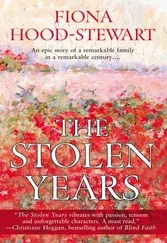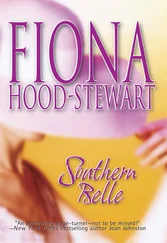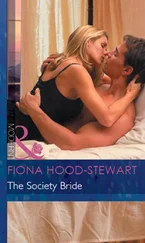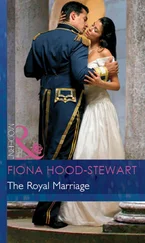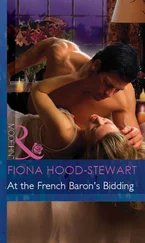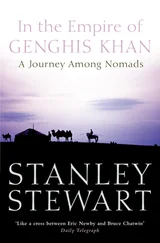India moved to the window and looked through the frosty panes at the fresh snow covering the lawn and at the Dunbar oak, standing regal and alone.
William, the first Dunbar to settle here, had planted the tree in 1280, and had made the pledge that had been handed down from generation to generation: While this oak tree stands, a Dunbar will always walk the land. India drew her eyes away sadly. If the property were sold, William’s vow would be broken.
As she was about to leave, India caught sight of the small writing desk her mother had used for her private correspondence. An uncapped fountain pen lay on a sheet of half-written writing paper. She crossed the room and picked up what appeared to be an unfinished letter, realizing with a start that it was addressed to her.
My dearest India,
I am sending this off to you today, for I am most distressed. I am suffering from a dreadful dilemma and need to speak to you urgently. Please come to Dunbar as quickly as you can. I’d call, but I’m afraid I will be overheard. You need to be aware—
The letter was cut short, as though Lady Elspeth had been interrupted. India frowned, glancing at the date. The letter had been written on the day of her mother’s death.
“MIRA means star. This is a writer definitely shining.”
—New York Times Bestselling Author
Heather Graham
The Journey Home
Fiona Hood-Stewart
 www.mirabooks.co.uk
www.mirabooks.co.uk
To
my darling boys,
Sergio and Diego,
and
in loving memory of Mummy,
my Lady Elspeth.
For all she was, and always will be to us all.
Mourn, hapless Caledonia, mourn
Thy banished peace, thy laurels torn.
Thy sons, for valor long renowned,
Lie slaughtered on their native ground;
Thy hospitable roofs no more
Invite the stranger to the door;
In smoky ruins sunk they lie,
The monuments of cruelty.
The wretched owner sees, afar,
His all become the prey of war;
Bethinks him of his babes and wife,
Then smites his breast, and curses life.
Thy swains are famished on the rocks,
Where once they fed their wanton flocks:
Thy ravished virgins shriek in vain;
Thy infants perish on the plain.
What boots it, then, in every clime,
Through the wide spreading waste of time,
Thy martial glory, crowned with praise,
Still shone with undiminished blaze?
Thy towering spirit now is broke,
Thy neck is bended to the yoke:
What foreign arms could never quell,
By civil rage and rancor fell.
The rural pipe and merry lay
No more shall cheer the happy day:
No social scenes of gay delight
Beguile the dreary winter night:
No strains, but those of sorrow, flow,
And nought be heard but sounds of woe,
While the pale phantoms of the slain
Glide nightly o’er the silent plain.
O baneful cause, oh, fatal morn,
Accursed to ages yet unborn.
The sons against their fathers stood;
The parent shed his children’s blood.
Yet, when the rage of battle ceased,
The victor’s soul was not appeased:
The naked and forlorn must feel
Devouring flames, and murdering steel.
The pious mother doomed to death,
Forsaken, wanders o’er the heath,
The bleak wind whistles round her head,
Her helpless orphans cry for bread,
Bereft of shelter, food, and friend,
She views the shades of night descend,
And, stretched beneath the inclement skies,
Weeps o’er her tender babes, and dies.
Whilst the warm blood bedews my veins,
And unimpaired remembrance reigns,
Resentment of my country’s fate
Within my filial breast shall beat;
And, spite of her insulting foe,
My sympathizing verse shall flow,
“Mourn, hapless Caledonia, mourn
Thy banished peace, thy laurels torn.”
—Tobias Smollett, 1746
This poem was written by the poet and satirist Tobias Smollett shortly after the Battle of Culloden, and expresses Scottish rage at the treatment of the vanquished Jacobites.
Many thanks to all those wonderful friends who have been there all along the way. Emilio Lopez, for lending me my first laptop, David d’Albis, for his patience and long suffering teaching me about computers, and Simon di Rollo, for his Scottish legal expertise. Special thanks to Heather Graham Pozzessere, Sally Fairchild and Joan Johnston, whose encouragement and faith in me have been so precious. Thanks also to the lovely ladies at MIRA: Dianne Moggy, Amy Moore-Benson and Martha Keenan. Last but not least, my deepest thanks to Jean Marie Grimsley, for her tireless assistance, and Sondra Schneider for helping me see more clearly.
Prologue
Chapter 1
Chapter 2
Chapter 3
Chapter 4
Chapter 5
Chapter 6
Chapter 7
Chapter 8
Chapter 9
Chapter 10
Chapter 11
Chapter 12
Chapter 13
Chapter 14
Chapter 15
Chapter 16
Chapter 17
Chapter 18
Chapter 19
Chapter 20
The Lowlands, Scotland
1746
Rob Dunbar held his young bride, Mhairie, close. They huddled by the smoking peat fire, hungry and exhausted after their harrowing journey from the Highlands. The small band consisting of Rob, his gillie, Hamish, and Mhairie and her mother had made their way south, disguised as drovers driving their cattle to market in Falkirk. They had avoided the Redcoats, and the only stops taken were in smoky bothies of other loyal Jacobite supporters, or outside, in the clachans, where Rob had tenderly laid his plaid on the heather and bracken for them to lie upon.
He gazed longingly at his lovely young bride, his heart full. Words seemed pointless now that so little time remained, and he raged at destiny for tearing them so cruelly apart when all they wanted was each other. How fortunate that they had married despite their parents’ opposition. Not that they had disapproved the match, but as Struan, her father, had remarked in his dour Highland manner, “What use is there te’ take a wife ye’ll nae have by yer side nor in yer bed, ma’ boy? Better fer both of ye te’ wait till all this warring is behind us.”
A sad smile touched Rob’s lips and he straightened the dirk stuck firmly in the heavy leather belt that secured his twelve-foot kilt and plaid. Wistfully he realized that those nights of love among the heather would be their only comfort in the dark days of separation to come.
He gazed at the fire and thought of the Colonies. They seemed so very far. Rob sighed and covered Mhairie tenderly with her plaid, wondering if she would ever return. Enemy troops were everywhere. Edinburgh Castle was in the hands of the Hanoverians, and many Lowlanders had turned traitor and joined German Geordie’s men. Even if Bonnie Prince Charlie won the battle that was brewing, hope of Mhairie’s return was faint. And if he lost, their fate would be a dismal one. The Prince’s followers would be vanquished men, stripped of their weapons, their estates forfeited to the English crown, and the whole uprising would have been for naught. Things had changed considerably since the uprising in 1715. Now Highland lairds were finding it hard to rally their men, and only the crois tara, the cross made of two charred sticks covered in blood which demanded on pain of death that a man follow his chieftain into battle, succeeded in persuading them.
Читать дальше
 www.mirabooks.co.uk
www.mirabooks.co.uk
